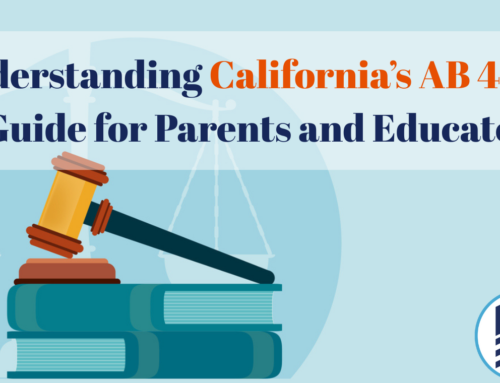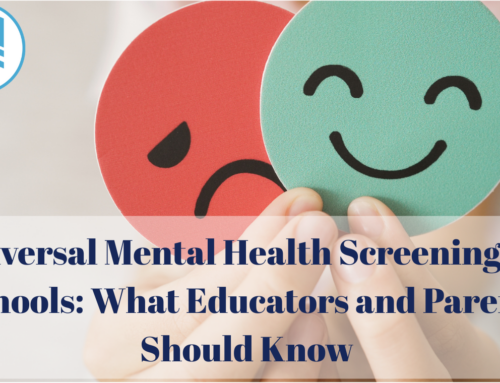
Did you know that there’s a National Speech and Debate Education Day every year? The first Friday in March celebrates the positive impact of speech and debate education on students, teachers, and the country.
Sometimes pushed to the “fringe” of school activities along with theater and band, speech and debate is actually filled with hidden advantages, offering students both short-term satisfaction and long-term benefits.
James Weaver, the Director of Performing Arts for the National Federation of State High School Associations, promotes the value of speech and debate as “an education-based activity that teaches research, speaking, and problem-solving skills students will use in all facets of their lives.”
Even Congress acknowledges the importance of this educational activity, solidifying the official national day of celebration in 2018. U.S. Representative Tom Garrett weighed in on the topic, stating, “Speech and debate can be one of the most rewarding and beneficial educational activities available to students. Not only does it provide students with a chance to shine in an academic environment, but it allows for a chance to win awards for intellect.”
As you can see, speech and debate inspires appreciation in people from every walk of life—from parents and students to teachers and legislators.
But how beneficial is it, really? It’s easy to see the value for students who grow up to be public speakers or politicians, but is there value in speech and debate for future electricians, bus drivers, or structural engineers?
Let’s dive in to discover the hidden importance of speech and debate for every student, regardless of occupational interest or future aspirations!
Research
Before any good debate, a student researches their topic. To understand and argue their point, they must have facts, statistics, and general knowledge of what they’re talking about. Research requires them to sharpen a specific skill set and be able to look at their topic with a wide lens.
Critical Thinking
Research requires a student to fully engage their critical thinking skills. They must be engaged and focused on the subject. They examine their stance from all angles before collecting the facts to support their argument.
Critical thinking skills allow them to pinpoint the strengths and weaknesses in their position and find appropriate solutions to bolster their case. This process hones their critical thinking skills in ways unique to speech and debate activities.
PubMed Central suggests that much of formal education neglects critical thinking skills. They note that “deficiencies in critical thinking skills among students may rest with the educational system itself, which often stresses memorization of voluminous amounts of material essentially unrelated to any type of application at all.”
In this light, the critical thinking opportunities available in speech and debate become even more valuable.
Diplomacy
The National Geographic Encyclopedia asserts, “Diplomacy is the art and science of maintaining peaceful relationships between nations, groups, or individuals.” In the context of speech and debate, diplomacy provides a civil platform on which students may come together and act within a prescribed set of rules.
Diplomacy, useful in almost any situation, is a valuable asset to any functioning adult. While researching their topic, students must work to see other points of view to argue their own effectively. This practice broadens their understanding of the issue and forces a nuance of diplomacy into the equation.
An open mind learns to adapt to fluid situations—such as a live debate—allowing the student to employ effective strategies.
A Wider View of the World
Speech and debate offers students a platform to explore hot topics, form opinions, and voice their thoughts. Facilitators often choose current events and historical movements as the subject matter. Pushed to interact with complicated situations, students can open their minds and explore issues that may have escaped their notice otherwise.
Tim Alderete, a speech and debate coach at The Meadows School, notes, “Speech and debate prepares a student to engage in a democratic society. Students study a wide range of issues, which helps them become informed about society and the world around them. They learn how to engage in a civil, organized discussion that looks for solutions.”
Building an Argument
Speech and debate teaches a student how to construct logical and thoughtful arguments that support their position. Having research in hand is one thing, but building an intelligent case is a bit different. To present a winning argument, the student must arrange their research into a logical pattern and create a compelling case.
Harvard University expounds on the necessary components of a logical argument and offers strategies for building one.
Leadership and Teamwork
Ayush Midha is a 12th grader, the captain of his debate team, and the 2014-15 O’Neill Leadership Trophy winner. He expressed his appreciation for the opportunity to hone his leadership skills:
“As a captain, I have had the opportunity to foster team success and lead my teammates by example,” Ayush told Harker News Online. “Even outside of debate, these skills have allowed me to take on leadership positions and experience success.”
Speech and debate offers a chance to cultivate leadership and teamwork within the close-knit community of a debate team. Older, more experienced team members work as captains, mentoring their teammates through the year. They must create a well-oiled machine, work together, and develop viable relationships.
Communication
Students who participate in speech and debate learn how to communicate effectively—it’s sink or swim! Arguing their topic, they present points and counterpoints in a manner that allows their audience and their opponent to comprehend the case they have built.
Research and a logical argument are a great start to a compelling debate, but if the student can’t convey understandable information to others, there’s little point to the exercise. Speech and debate teaches students how to successfully exchange information, a critical skill for every functioning adult.
The Golden State Academy points out, “Speech and Debate is the art of communication.” This captures the essence of the exercise beautifully. Students grow and strive to achieve excellent communication skills to succeed in this endeavor.
Receiving Constructive Criticism
When someone works hard on a project or pours their heart into a passion, it can be difficult to accept anything less than congratulations or praise.
Unfortunately, criticism is a part of life, and it’s best to learn how to accept critiques earlier rather than later.
Speech and debate offers students a chance to demonstrate the best that they have to offer and then benefit from the (sometimes-painful) wisdom of others. When constructive criticism presents opportunities to improve, successful debaters learn to accept it with grace and poise. Speech and debate opens a new door for self-growth.
CollegeVine instructs students, “When you have the opportunity to receive direct feedback from your judges, you should take it seriously…these can be a helpful source of advice for how to adjust your performance…”
Mastering the ability to accept constructive criticism enriches the student’s life and ensures that they have the freedom to grow from each life experience.
Beyond the Exercise
Participating in speech and debate often create optimal conditions for success in the adult world. According to the National Speech and Debate Associate (NSDA), of students who participated in speech and debate while in school,
- 90% obtain a graduate-level college degree
- 15% are top-ranking executives in their corporation
- 30% are university educators
- 10% work in government
Additionally, speech and debate’s influence on academic progress while still in school is very promising:
- 15% of speech and debate participants experience higher self-esteem
- 31% of speech and debate participants attend classes more regularly
- 36% of speech and debate participants see an increase in their reading test scores
- 87% of speech and debate participants improve their analytical skills
- 100% of speech and debate participants experience an increase in interest in their classes
- 100% of speech and debate participants are less likely to experience drug use, early pregnancy, and alcohol abuse
Statistically speaking, students who join in speech and debate have a bright future ahead of them. The skills that they acquire while practicing this academic discipline are essential to many areas of their adult life.
Forbes recognizes these qualities and admonishes future employers to be on the lookout for bright young people who have enjoyed the rigor of speech and debate: “Many business leaders are frustrated in their attempts to find Millennials (born between 1980 and 2000) who seem to have the potential to lead the company in the years ahead. I’ve got a suggestion: search for those who competed in speech and debate competition in high school (or college) and hire them….They all come dressed like business executives and they have a deep understanding of how to persuade, how to present clearly, and how to connect with an audience. It’s impressive….Be on the lookout for Millennials who have participated in speech and debate training. Hire them and put them on your leadership fast track.”
Conclusion
Speech and debate is a wildly profitable school subject with undeniable academic and real-world value.
Any student who wants to add to their marketable skills should consider joining their local speech and debate team. Offering students the opportunity to develop and practice their research skills, build and communicate convincing arguments, and create and nurture a team atmosphere, speech and debate is a worthy academic pursuit.
ThoughtCo. summarizes the benefits of speech and debate, both on a professional and personal level. “Knowing how to synthesize information and deliver it to an audience succinctly—even an audience of one—is a skill that benefits people throughout their lives….These ‘soft skills’ can help in most careers because debate students learn the art of persuasion….Outside of the working world, having good communication skills is useful in activities as ordinary as meeting new people or as special as making a wedding toast in front of a crowd….”
Whether a student is an old hand at speech and debate or giving it their first try, they will have a learning experience to remember. While most people initially struggle to perform in front of an audience and logically convey their ideas under pressure, the support and coaching that they receive with continued training will help them overcome those first hurdles.
Don’t overlook the hidden importance of speech and debate. There are some things a textbook alone can’t teach.




